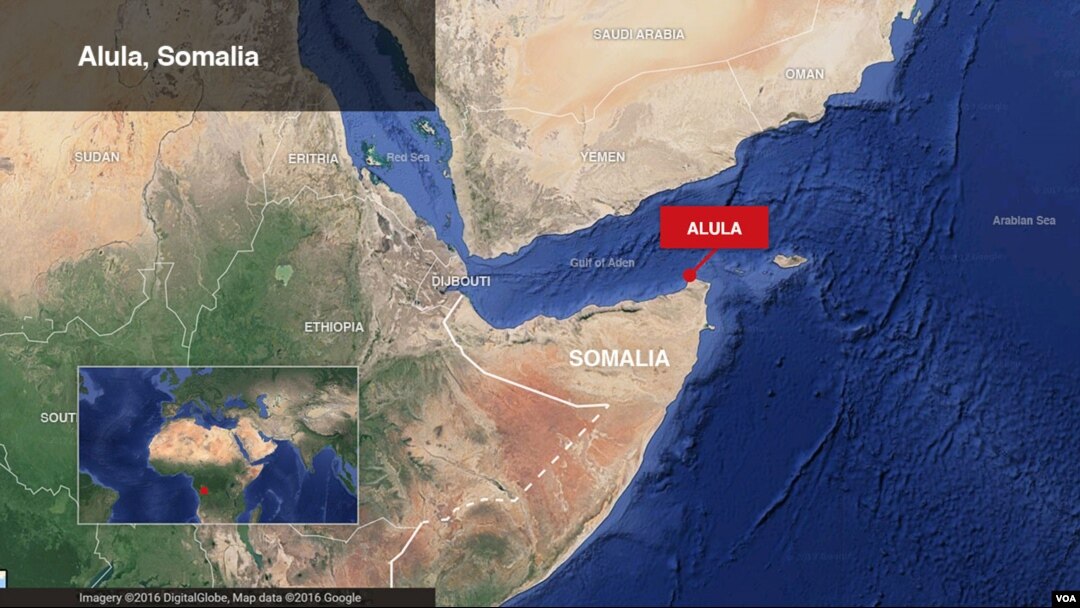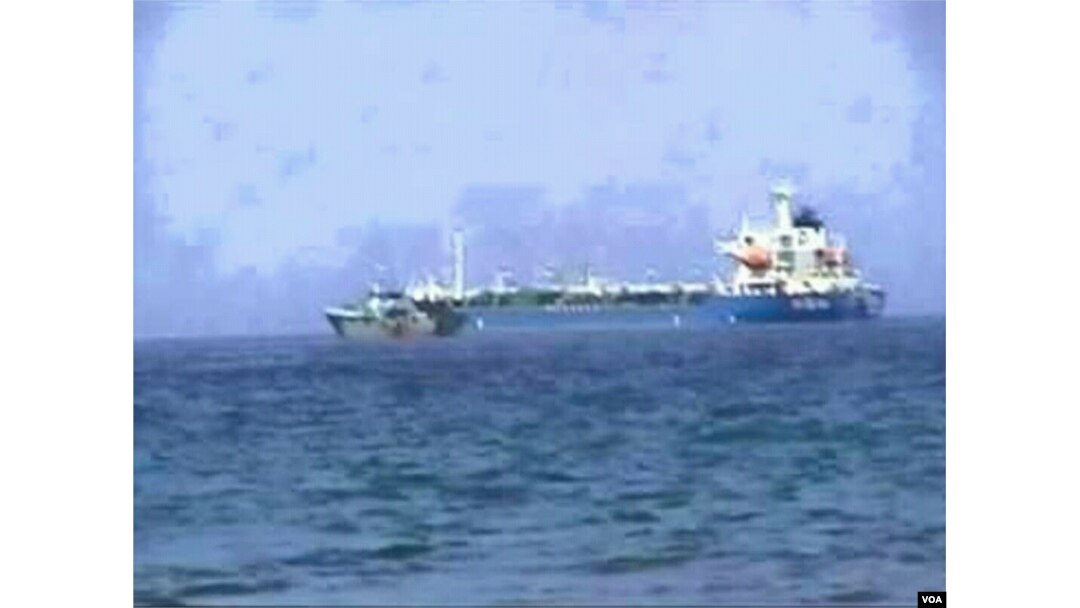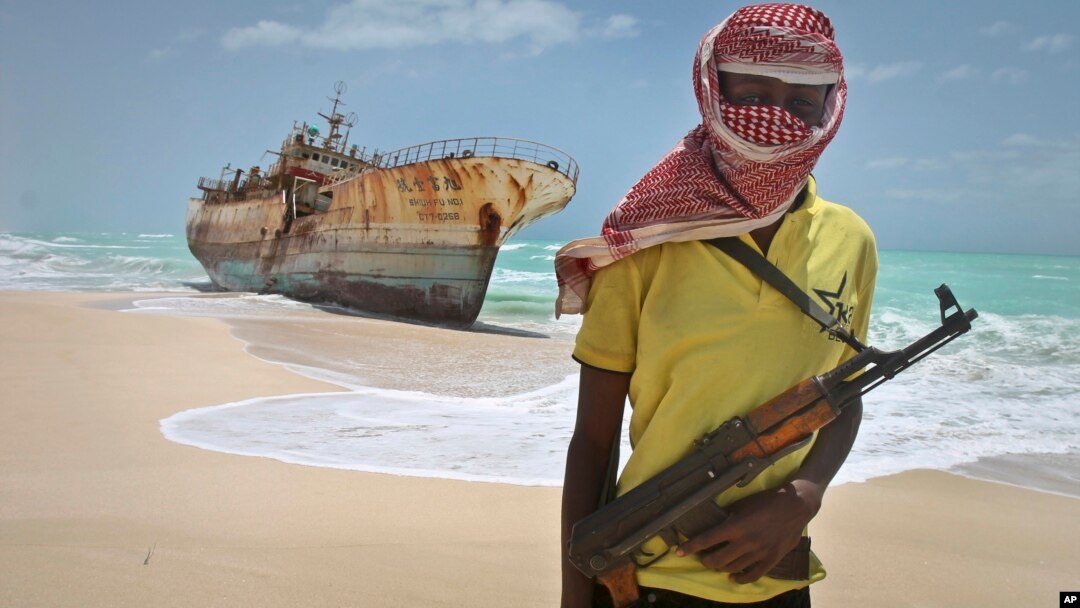The hijackers who seized an oil tanker and its eight-man crew off Somalia are demanding “compensation” for a rise in illegal fishing in Somali waters.
VOA’s Somali service spoke by phone to one of the hijackers Tuesday, a day after men boarded and seized the ship about 30 kilometers off the Somali coast, then anchored off Alula, a town in Somalia’s Puntland region.

The hijacker said seven men took part in the raid. He asserted that he and his colleagues are fishermen, not pirates.
“We have decided, as local fishermen, to resist illegal fishing. We have taken arms to defend ourselves, and we will continue,” said the man, who declined to give his name and did not suggest any dollar figures.
Asked about the crew, he said: “It’s not our principle to kill them. They are healthy. We looked after them. We are after the people who sent them, to make sure they never return.”

Photo of hijacked tanker provided to VOA's Somali service by hijacker, March 14, 2017.
The ship, the Aris 13, is owned by a company in the United Arab Emirates and is carrying eight crew members, all from Sri Lanka.
Regional maritime officials told VOA that the ship had departed from Djibouti port and was headed for Mogadishu carrying oil and gas.
John Steed, regional manager for the NGO Oceans beyond Piracy, says the ship was approached by two skiffs, one of them asking for water.
“The captain, having reported that, was not heard from again and the company could not raise the ship and the ship was seen to move into the coast of Somalia,” Steed said.”
Steed says he does not know if there were any gunshots or violence before the ship was seized. He said a Japanese warship responded to the hijacking but is being careful so as not to endanger the tanker’s crew.
The situation is reminiscent of the piracy that flourished in Somali waters between 2007 and 2011. Bands of Somali pirates, based in Puntland or central Somalia, hijacked dozens of foreign vessels during that time, often receiving multi-million dollar ransoms to free the ships and their crews.
Piracy nearly vanished in subsequent years, as ships passing by Somalia improved on-board security and international navies stepped up patrols in the Gulf of Aden, the Arabian Sea and the western Indian Ocean.
Maritime groups have warned that piracy could return because of increased fishing by foreign vessels in Somali waters, most of them from Yemen and Iran.
“There are a lot of illegal vessels off the coast of Somalia, most without license and not paying for their license dues to Somalia,” said Steed. “Many of these fishing fleets are very aggressive and there has been fighting between fishing vessels. There may well have been murder among fishermen.”
However, Steed said he doubted the hijackers’ claim to be mere fishermen, calling it “highly unlikely.”
Officials in the Puntland region said they are watching the hijacked ship and have put security forces on alert.
“These are pirates. I have mobilized the troops in the area, Our plan is to do whatever we can in our effort to face this piracy act,” said Ali-Shire Mohamud Osman, a senior official in Alula.
He said his administration has not made contact with the hijackers nor received any demands from them.


